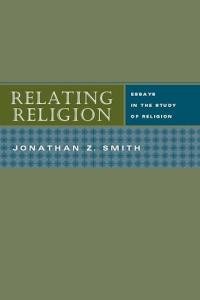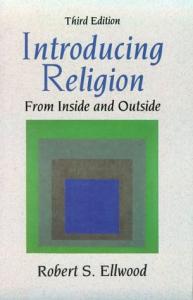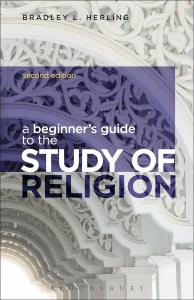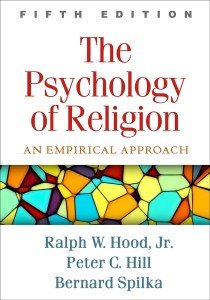Choosing a major or minor is a pivotal decision for any college student. Fields like business, engineering, or biology may seem like obvious routes to professional stability and prosperity. However, disciplines within the humanities often offer equally profound—but sometimes less obvious—advantages. Among these, religious studies stands out as a field that is both deeply enriching and broadly applicable. Deciding whether to major or minor in religious studies is not simply an academic choice; it is a commitment to understanding the diverse ways that humans have sought meaning, built communities, and shaped societies throughout history. In this article, we will explore the many intellectual, personal, and professional reasons to pursue religious studies as a significant part of your college education.
The Intellectual Merits of Religious Studies
Broadening Critical Perspectives
At its core, religious studies is not about promoting any particular faith, but rather about the rigorous and empathetic analysis of religious beliefs, practices, and institutions. Students are exposed to a diverse range of traditions, including Christianity, Islam, Judaism, Buddhism, Hinduism, Indigenous religions, and many others. This breadth encourages students to confront their assumptions, challenge stereotypes, and develop a more nuanced appreciation of the complexity of human belief.
The study of sacred texts, rituals, myths, philosophies, and histories sharpens critical reasoning and interpretative skills. Students learn how to read closely, think thoughtfully, and synthesize sometimes contradictory information. Whether through textual analysis, ethnographic research, or comparative study, religious studies demands intellectual rigor and rewards those who approach it with open-minded curiosity.
Interdisciplinary Connections
Religious studies is inherently interdisciplinary. It draws upon history, anthropology, sociology, psychology, literature, philosophy, political science, and even the natural sciences. This means that students majoring or minoring in religious studies develop skills that are transferable to a wide range of disciplines. Whether analyzing the influence of religion on political movements, interpreting the symbolism in ancient art, or considering the ethical implications of scientific advances, students are trained to make connections across fields—a vital ability in our increasingly interconnected world.
Understanding Global Affairs
In a globalized society, religious literacy is more important than ever. Religion continues to profoundly shape politics, conflict, and culture. From international relations to peacebuilding, environmental stewardship to human rights advocacy, a working knowledge of religious dynamics is indispensable. By majoring or minoring in religious studies, students gain insights that help them interpret current events and engage responsibly with the global community.
Personal Growth Through Religious Studies
Developing Empathy and Self-Reflection
Religious studies offers a unique opportunity for personal growth. Encountering the beliefs and traditions of others often prompts students to reflect on their values, assumptions, and identities, fostering greater empathy, humility, and openness. By grappling with ultimate questions—such as life, death, suffering, love, justice, and the nature of reality—students deepen their sense of purpose and meaning.
Navigating Diversity with Confidence
College campuses and workplaces are more diverse than ever before. The ability to understand and appreciate religious differences is a key component of cultural competence. Those who major or minor in religious studies are better equipped to interact with people from diverse backgrounds. They are also more likely to approach controversial issues with sensitivity and respect. These qualities are prized in both professional and personal contexts.
Ethical Reasoning
Religious studies challenges students to consider the foundations of morality and ethics. By engaging with multiple ethical systems—both religious and secular—students hone their ability to reason about complex decisions. This is not only invaluable for personal development but also critical for fields such as law, medicine, and public policy, where ethical dilemmas abound.
Professional Advantages of Religious Studies
Communication and Analytical Skills
Employers consistently cite strong analytical and communication skills as top priorities in their hiring decisions. Religious studies majors and minors are adept at reading complex texts, constructing and defending arguments, and writing clearly and persuasively. These skills are highly transferable and open doors to a wide variety of careers.
Career Paths and Opportunities
While some assume that religious studies primarily leads to careers in ministry or academia, the reality is much broader. Religious studies graduates go on to successful careers in:
- · Education and academia
- · Nonprofit and humanitarian work
- · International relations and diplomacy
- · Law and public policy
- · Healthcare and counseling
- · Journalism and media
- · Business and management
- · Art, literature, and creative industries
In each of these fields, the ability to understand and navigate religious and cultural diversity is an asset. In an era when many companies and organizations operate globally, the skills developed in religious studies are in high demand.
Preparation for Graduate Study
Majoring or minoring in religious studies is excellent preparation for graduate work, not only in religious studies itself, but also in fields such as law, medicine, business, education, divinity, and the social sciences. The field’s emphasis on critical thinking, research, ethical reasoning, and cross-cultural understanding makes its students exceptionally competitive.
Advocacy and Social Justice
Many students who are passionate about social justice, advocacy, and activism find that religious studies provide a robust foundation. The field’s attention to the ways religion has both inspired and impeded movements for change provides invaluable perspective. Understanding the roles that religion plays in issues such as civil rights, gender equality, environmental stewardship, and peacebuilding allows graduates to become more effective advocates and leaders.
Dispelling Common Myths
“Religious Studies is Only for the Religious”
One common misconception is that religious studies is only relevant for those who practice a faith. In reality, the academic study of religion is open to everyone, regardless of personal beliefs. Students approach the field from a variety of religious, secular, and skeptical perspectives, enriching classroom discussions and broadening their understanding in the process.
“There Are No Jobs for Religious Studies Majors”
While religious studies does not train students for a single, prescribed career path, it provides a flexible and adaptable set of skills. In a rapidly changing job market, adaptability is an enormous advantage. Moreover, as discussed above, the skills and cultural competencies gained in religious studies are highly valued across sectors.
“It’s Not Practical”
Practicality comes in many forms. While religious studies may not provide technical training in a narrow field, it does prepare students to think critically, communicate effectively, and engage thoughtfully with a complex world. In many ways, these are the most practical skills of all.
Conclusion
Majoring or minoring in religious studies is a decision that offers intellectual stimulation, personal enrichment, and professional versatility. In a world marked by religious and cultural diversity, the ability to understand and engage with difference is more important than ever. Religious studies equips students not only with knowledge of the world’s traditions but also with the empathy, ethical reasoning, and adaptability needed to thrive in any field. Whether you seek to become a scholar, educator, advocate, or leader in another sphere, religious studies provides a foundation for a thoughtful, engaged, and meaningful life. For the curious, the compassionate, and the ambitious, religious studies is a discipline worth considering.
Relating Religion: Essays in the Study of Religion
by Jonathan Z. Smith
Product information
Product Review Score
4.94 out of 5 stars
17 reviewsProduct links







